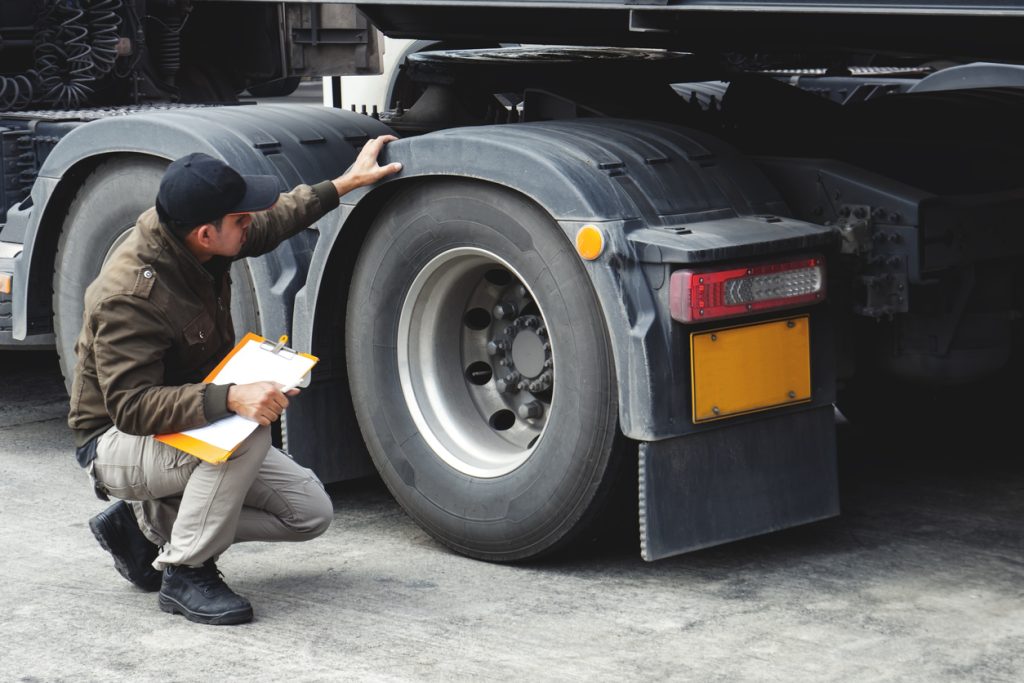
We offer this helpful short summary of the DOT regulations for drivers, owners and other non-mechanics. This information is not to be used to perform or otherwise certify a vehicle is compliant, safe or road ready.
Who Are the Regulators and What are the Regulations?
The Federal Motor Carrier Safety Regulations (FMCSRs) govern DOT inspections. The specific requirements are in the Code of Federal Regulations (CFR), 49 CFR Part 396, Section 396.17.
What Vehicles Must Be Registered with the DOT and Have Annual Inspections?
- Commercial motor vehicles (CMVs) that weigh more than 10,000 pounds
- Trailers with a Gross Vehicle Weight Rating (GVWR) of over 10,000 pounds
- Trucks that pull trailers and the combined weight is over 14,000 pounds
- Vehicles that transport more than 16 passengers, including the driver
- Passenger buses
- School buses
- Vehicles that transport hazardous materials

What Is the Annual Requirement?
All vehicles, even new ones, must have a DOT inspection annually. The truck, trailer or bus must have a DOT sticker indicating its expiration date and must have the DOT inspection form on the vehicle. Trailers need a document holder on it for this document.
The company that owns the vehicle, trailer or bus must have a copy of the annual DOT inspection form signed by the inspector on file for a minimum of 14 months. Daily Vehicle Inspection Reports (DVIRs) must be kept for a minimum of 3 months.
Who Can Perform a DOT Inspection?
Law enforcement professionals or certified diesel mechanics can perform the DOT inspections required for your fleet.
What are the Penalties for Expired or Failed DOT Inspections?
Having an expired or failed DOT inspection can lead to various penalties and consequences for commercial truck drivers and carriers.
The fines for failing a DOT inspection can vary significantly depending on the nature of the violation. They can range from hundreds to tens of thousands of dollars per violation. Knowing falsification of records can incur fines of up to $14,960. Typical fines for an expired DOT are $1,100 to $1,500.
What is Inspected During a DOT Inspection?

- Full inspection of entire brake system
- Full inspection of steering system
- Full inspection of the suspension.
- Inspection of the frame, wheels, rim locks seats, bumpers, mirrors and other components
- All lights must be operable
- Windshield cannot have any cracks and windshield wiper must be working
- Tire treads must have a depth at its lowest point of 4/32 of an inch on the front tires and 2/32 on the rear tires
- No fuel, oil, hydraulic or coolant leaks
- No exhaust leaks
- All coupling devices are in good working order
- No check engine light or other error codes.
DOT inspections are an important part of keeping fleets safe and compliant. When used in conjunction with Daily Vehicle Inspection Reports and Post Trip inspections, they provide a foundation for keeping our roads and drivers safe.
Contact Mobile Wrench Fleet for all your on-site mobile diesel mechanic inspections, diagnosis, maintenance and repair needs. We serve customers in the Denver metro area, Northern Colorado and Colorado Springs.
